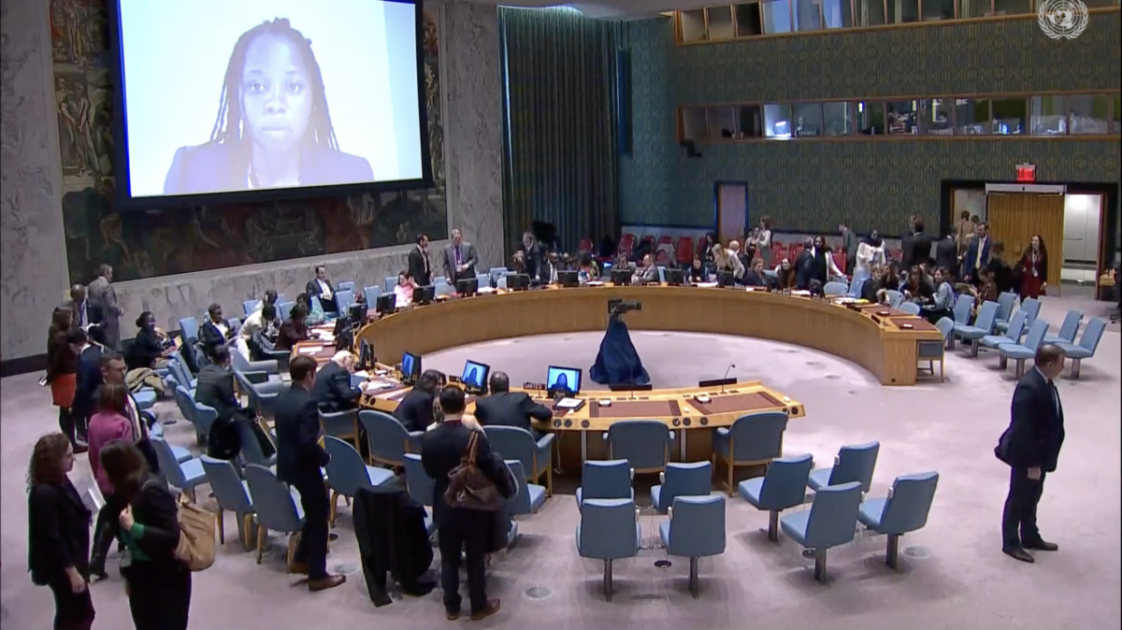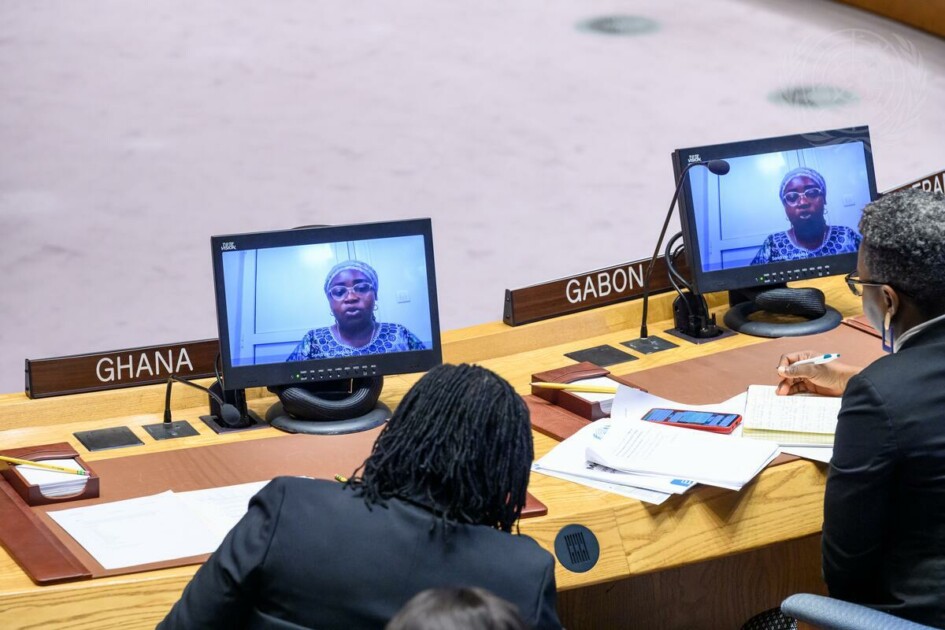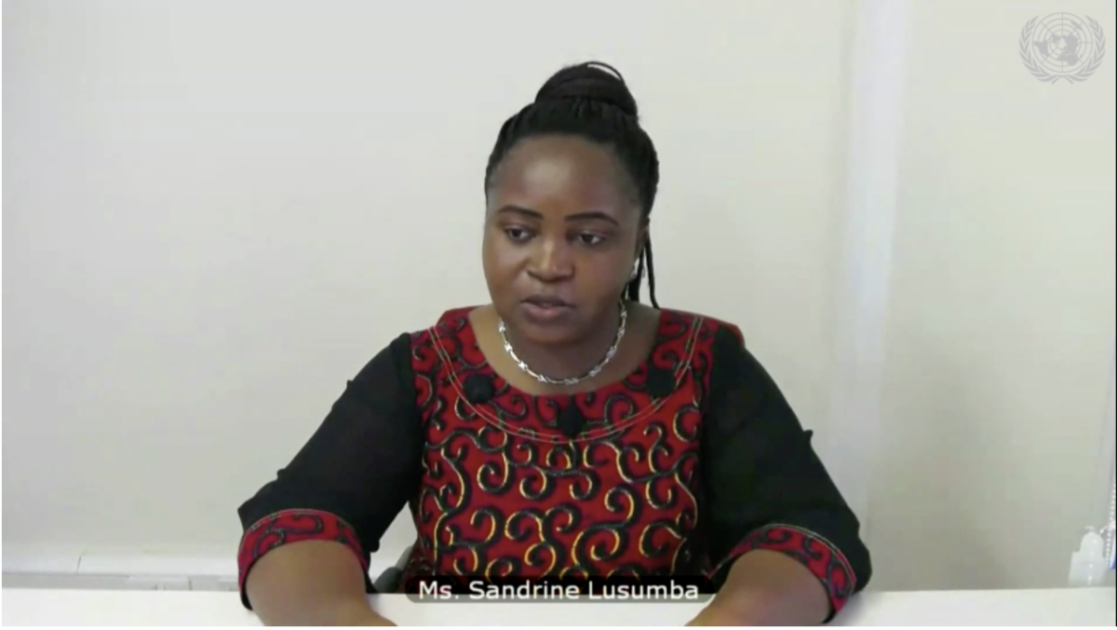Democratic Republic of the Congo
Women in the Democratic Republic of Congo continue to face widespread sexual violence, disease, and displacement in conflict situations arising from clashes between dozens of armed groups. Often, sexual violence and rape are used as terror tactics and weapons of war, and despite the ratification of the Convention on the Elimination of All Forms of Discrimination against Women (CEDAW) and the Women’s Platform for the Peace, Security and Cooperation Framework, women are still largely underrepresented in peacebuilding efforts. Additionally, women activists face rape as a form of torture by government actors who disagree with their political activity. The United Nations Organization Stabilization Mission in the DRC (MONUSCO) aims to provide protection for civilians, including reducing the threat of armed groups perpetrating sexual and gender-based violence, monitoring and reporting on sexual violence and ensuring women’s participation in stabilization and national political dialogue.
Democratic Republic of the Congo
Women in the Democratic Republic of the Congo continue to face widespread sexual violence, disease, and displacement in conflict situations arising from clashes between dozens of armed groups. Often, sexual violence and rape are used as terror tactics and weapons of war, and despite the ratification of the Convention on the Elimination of All Forms of Discrimination against Women (CEDAW), and the Women’s Platform for the Peace, Security and Cooperation Framework, women are still largely underrepresented in peacebuilding efforts.
Additionally, women activists face rape as a form of torture by government actors who disagree with their political activity. The United Nations Organization Stabilization Mission in the DRC (MONUSCO) aims to provide protection for civilians, including reducing the threat of armed groups perpetrating sexual and gender-based violence, monitoring and reporting on sexual violence and ensuring women’s participation in stabilization and national political dialogue.
Current and Past Recommendations to the UN Security Council (Monthly Action Points)
The NGOWG is deeply concerned at the persistent lack of accountability for crimes in DRC, including mass rape in Walikale in 2010 and the area around Fizi in 2011, as well as the most serious violations of human rights and international humanitarian law in the DRC between March 1993 and June 2003, as reported by OHCHR in 2010. In its discussions on the situation in the DRC, including on the role of the UN mission (MONUSCO), the Council is urged to:
- Hold the DRC Government and MONUSCO to account for the lack of due diligence in effective investigation and prosecution of suspected perpetrators of sexual violence, effective witness protection, and the adequate services for survivors;
- Request an update on the status of women’s right and capacity to vote and to stand in the upcoming elections;
- Request information on UN and DRC government contingency plans against destabilization resulting from upcoming elections, including effective monitoring and early warning mechanisms, and enhanced protection of civilians, in particular at risk groups including IDPs and women and girls;
- Strengthen oversight of national and international military and police forces, to prevent crimes including sexual violence; and
- Review the resources made available, including by UNHCR, to assist internally displaced Congolese.
The NGOWG is deeply concerned at the persistent lack of accountability for crimes in DRC, including mass rape in Walikale in 2010 and the area around Fizi in 2011, as well as the most serious violations of human rights and international humanitarian law in the DRC between March 1993 and June 2003, as reported by OHCHR in 2010. In its discussions on the situation in the DRC, including on the role of the UN mission (MONUSCO), the Council is urged to:
- Hold the DRC Government and MONUSCO to account for the lack of due diligence in effective investigation and prosecution of suspected perpetrators of sexual violence, effective witness protection, and the adequate services for survivors;
- Request an update on the status of women’s right and capacity to vote and to stand in the upcoming elections;
- Request information on UN and DRC government contingency plans against destabilization resulting from upcoming elections, including effective monitoring and early warning mechanisms, and enhanced protection of civilians, in particular at risk groups including IDPs and women and girls;
- Strengthen oversight of national and international military and police forces, to prevent crimes including sexual violence; and
- Review the resources made available, including by UNHCR, to assist internally displaced Congolese.
Relevant Resources









